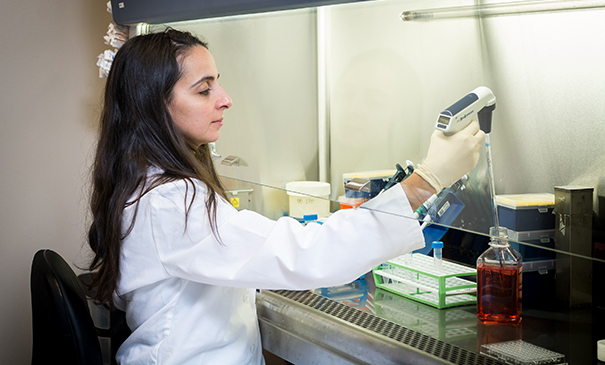
Lupus is one of the most difficult autoimmune diseases to diagnose and treat. Clinicians and researchers at Virginia Mason and Benaroya Research Institute at Virginia Mason (BRI) are leaders in looking for causes and cures of the disease. BRI Principal Investigator Adam Lacy-Hulbert, PhD, and his team recently made a new discovery regarding how lupus is triggered. They gratefully received a grant from The Marco J. Heidner Foundation to better understand how the newly discovered mechanism works and how to affect it.
Autoimmune diseases occur when the immune system – which is designed to protect the body against infection - makes a mistake and attacks its own healthy tissue. In lupus, the body attacks parts of dying cells throughout the entire body that would normally be quickly cleared away. This can cause inflammation and low blood cell counts causing fatigue, joint pain, rash, chest pain, headache, confusion, bleeding problems and other symptoms ranging from mild to life-threatening.
New Mechanism at Play
Dr. Lacy-Hulbert and colleagues have identified a new mechanism that prevents the immune system from reacting to the debris that leaks from cells as they die. “We think that loss of this mechanism may be one of the reasons why some people develop lupus,” he explains. “We hope this grant will allow us to understand how this mechanism works in a particular type of immune cell, the plasmacytoid dendritic cell.” This cell can serve as a master regulator of immune responses and has been heavily implicated as a major contributor to lupus and other autoimmune diseases.
Lupus Affects 1.5 Million
Lupus affects 1.5 million Americans and is a chronic disease. It predominately affects women and usually develops between 15 - 46 years of age. There are very few effective long-term treatments and no cure.
“We hope our research will provide understanding into why certain people get lupus and will help in identifying new targets for drug development,” emphasized Dr. Lacy-Hulbert. “It’s very important to receive this pilot funding from The Marco J. Heidner Foundation. This is a compelling project that has a real possibility of leading new insights into disease. This grant gives us the opportunity to provide key data that shows our approach works and our innovative ideas are on track.”
Heidner Foundation Emphasizes Medical Research
“The Marco J. Heidner Foundation’s founder had a great interest in supporting medical research among other areas,” says Alison Yeager, Managing Director of Union Bank in Tacoma that administers the foundation trust. “We chose the Benaroya Research Institute grant to fund because of the reputation of the organization, the impact on the community and the ability of the program to do good work with the support of the trust. We felt it was worthwhile for them to have a chance to succeed.”
“BRI is unique in having scientists that cover all stages of research, from basic research right through to clinical trials,” says Dr. Lacy-Hulbert. “We also have an amazing community of patients and volunteer research participants that provide blood samples for us to study disease. With this grant, we can take my basic research team and work more closely with other researchers who are experts in collaborating with patients and human samples. These interactions are essential for the sort of breakthroughs that are made at BRI. Ultimately, we hope this research can lead to better approaches to treatment.
“We all want to thank The Marco J. Heidner Foundation for their vital support and we want to express our gratitude by using this wonderful opportunity they have given us to make important new advances in understanding lupus.”
 |
| Terms of Use |  |
Privacy Policy |  |
Notice of Privacy Practices |  |
Site Map |  |
Home |